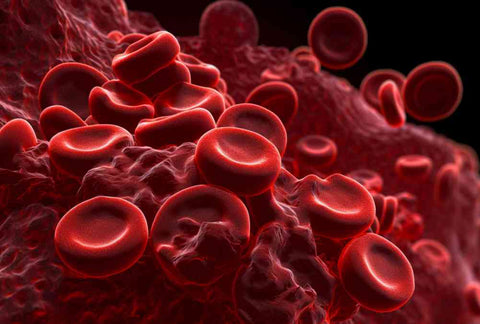Spotlight on ITP Awareness: Know the Signs

When it comes to maintaining a healthy lifestyle, awareness of immune system-related conditions is crucial. While these conditions might be rare, understanding the signs and symptoms can help with early detection and management, improving overall well-being.
One such condition affects the body’s platelet levels, which play a critical role in blood clotting. Platelets are small, essential cells in the blood, and their main function is to stop excessive blood loss by forming clots. Lowering in the number of platelets can lead to easy bruising and other symptoms that may seem minor at first but can become more concerning over time.
Key Symptoms to Watch For:
Recognizing the symptoms early on can help you seek appropriate care. Some common signs that the body’s platelet count may be lower than normal include:
- Unexplained Bruising: People may notice bruises forming in unusual areas or without any known cause. These bruises tend to be more prominent or widespread than what might be typical for the person.
- Frequent Nose Irritations or Gum Sensitivity: Another warning sign is frequent nose issues or gum irritation, even in the absence of injury. The issue may persist or be more difficult to manage than usual.
- Extended Clotting Time from Cuts: When someone has a lowered platelet count, small cuts or wounds might take longer to close, as clotting is delayed.
- Tiny Red or Purple Spots (Petechiae): These spots, which appear on the skin, can be a sign that the blood vessels are leaking due to low platelet levels. They often appear on the lower legs or in areas where pressure is applied.
- Heavier Menstrual Flow: In individuals who menstruate, periods may become heavier or last longer than usual, which could be a potential symptom of a lowered platelet count.

Factors That May Impact Platelet Levels
Various factors can influence the body's platelet production. These include changes in bone marrow function, certain medications, or immune responses. In some instances, external factors like infections can play a role in affecting platelet numbers. Individuals experiencing these symptoms should consult a healthcare professional to explore possible contributing factors and get appropriate advice.
Strategies to Support Platelet Health
If platelet levels fall to a concerning level, healthcare providers can recommend different strategies. Wellness approaches might include medications that support immune health, dietary adjustments, and lifestyle changes that promote overall blood health.
Maintaining a balanced diet rich in vitamins and nutrients can be beneficial to overall well-being. Additionally, getting adequate rest, staying hydrated, and managing stress are all helpful in supporting the body's natural processes.
Supporting Awareness and Education
Public awareness initiatives are essential in educating people about the signs associated with low platelet levels. This kind of ongoing education allows individuals to recognize when to seek medical advice, which can help improve outcomes.
Was this insightful? Signup for our newsletter, CLICK HERE
RELATED: How Superfoods Support Low Blood Platelet Health Naturally










